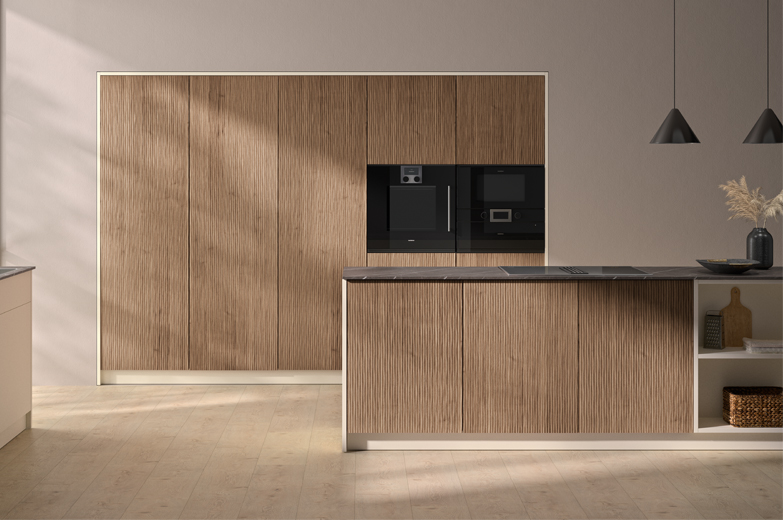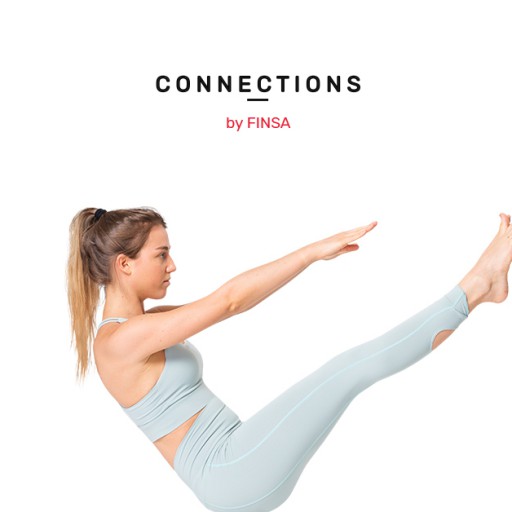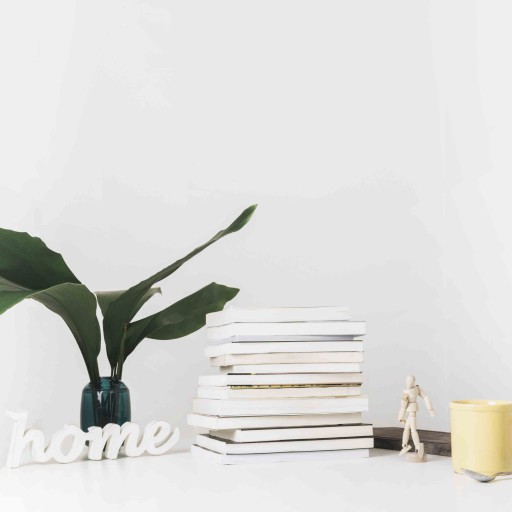Immersion and experience are the keywords of recent years in interior design. After conquering the living space, we are now seeing them in retail and workplace. One of the strategies to achieve this necessary interaction between spaces and people lies in textured finishes, which are fundamental in creating a habitat richer in narrative.
Stories through tactility
We are increasingly looking for enthusiastic designs that break away from the mundane and mass-produced, delving into the project’s history. In this introspection towards expressiveness, trends such as radical conservation are articulated, emphasizing sustainability and local and recycled products, or surfaces with high haptic qualities that encourage touch and interaction.
Whether through craftsmanship or technological innovation, the conceptualization of interior design becomes a tangible tale of circularity, heritage, and authenticity. Ultimately, these spaces are not only havens of beauty and functionality but also of meaning and connection, offering a nuanced experience for both body and soul.
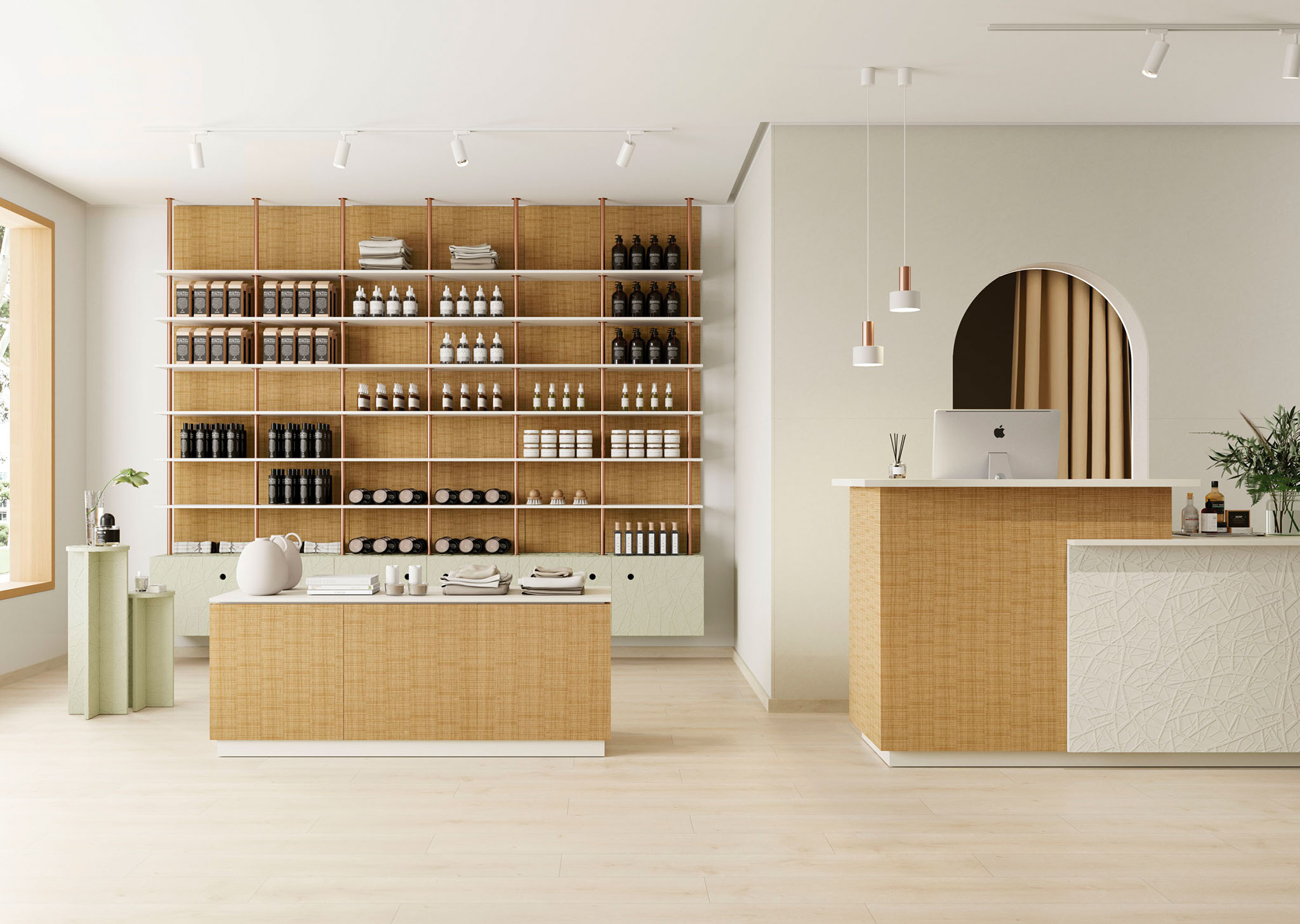
Shapes, colours and materials for 2024
In the selection of texture trends for 2024 in the realm of interior design, we encounter a diversity of approaches in shapes, colours and materials. A notable application is the use of bold geometries, where strong and curved shapes are employed in furniture to create pieces that are both functional and sculptural, adding a tactile and visually appealing dimension. Classic patterns like polka dots and stripes are refreshed, incorporated into furniture, carpets, walls, and decorative accessories to create stimulating focal points.
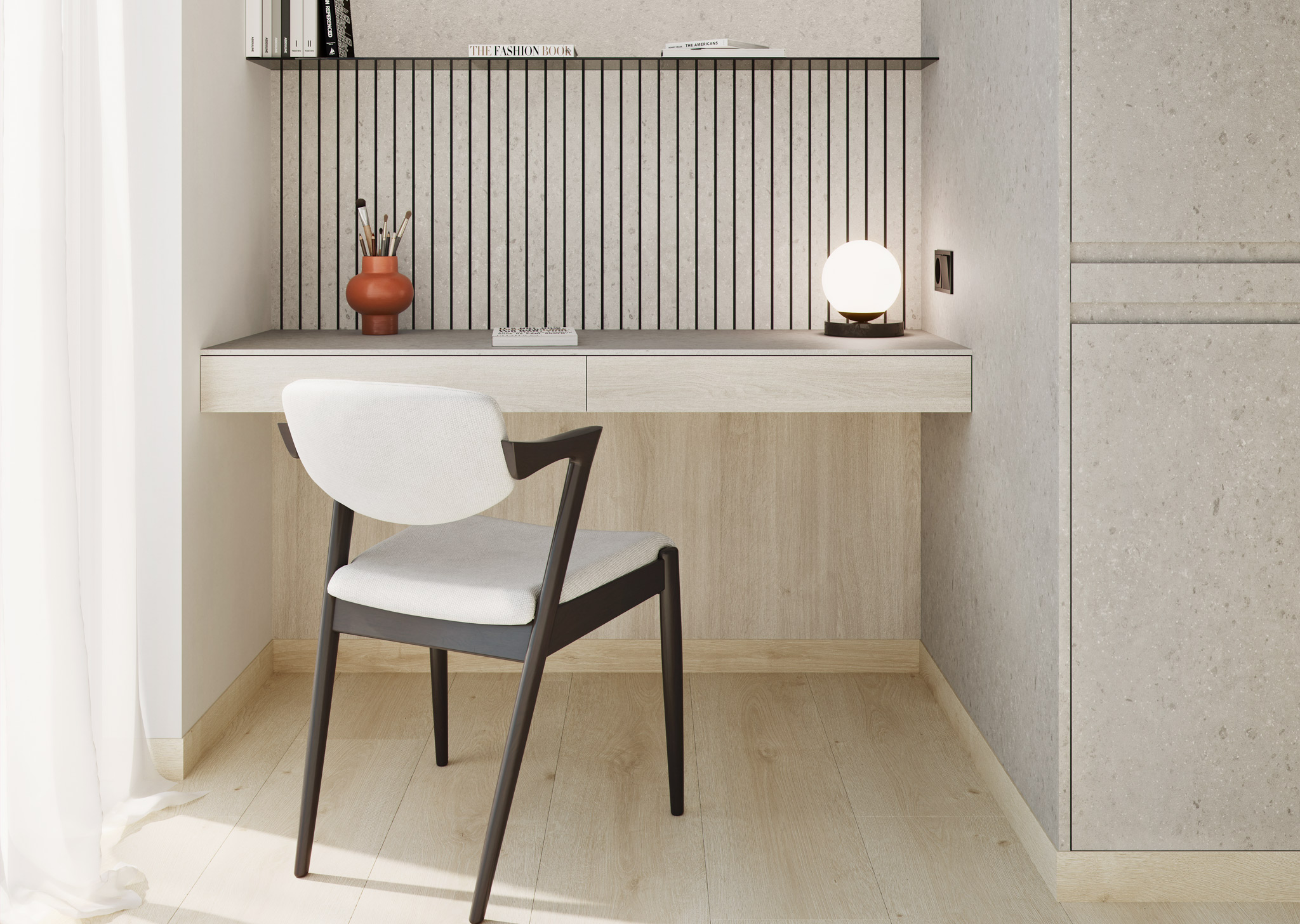
Simultaneously, there’s a preference for industrial metals like steel and aluminum, presented in a way that highlights craftsmanship, with organic shapes that narrate their manual creation. Sustainability is emphasized through the exploration of new compounds and techniques, focusing on bio-based and recycled materials, integrating an eco-friendly ethos without compromising aesthetic appeal. We’ll see effects of recycled textiles like this finish, conveying the passage of time in an old fabric. Patchwork, tapestries, and other artisanal techniques echo the wabi-sabi philosophy, reflected in imperfect finishes.
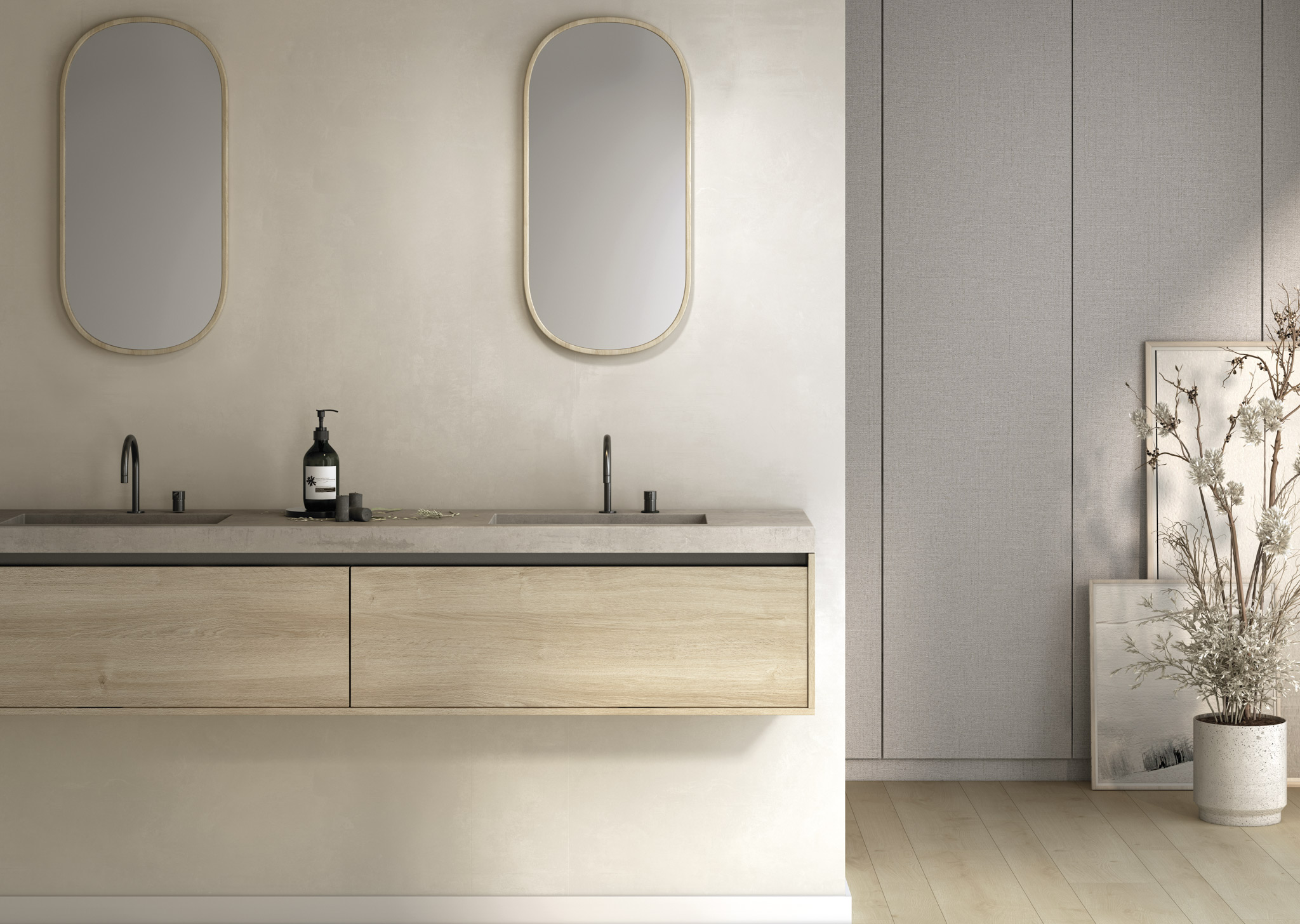
3D printing becomes an ally in developing hyper-haptic designs that also allow for the reuse of waste. Such is the case with Bluecycle, a Greek company that turns waste from the shipping and fishing industries into interior finishes.
Ver esta publicación en Instagram
As for the colour palette, although neutral tones remain predominant, there’s room for subtle chromatisms and even for touches of brighter tones, but in smaller quantities and carefully chosen in monochromatic spaces. We suggest adding color first in less permanent elements, like decorative items and paint, allowing for easier changes in the future.
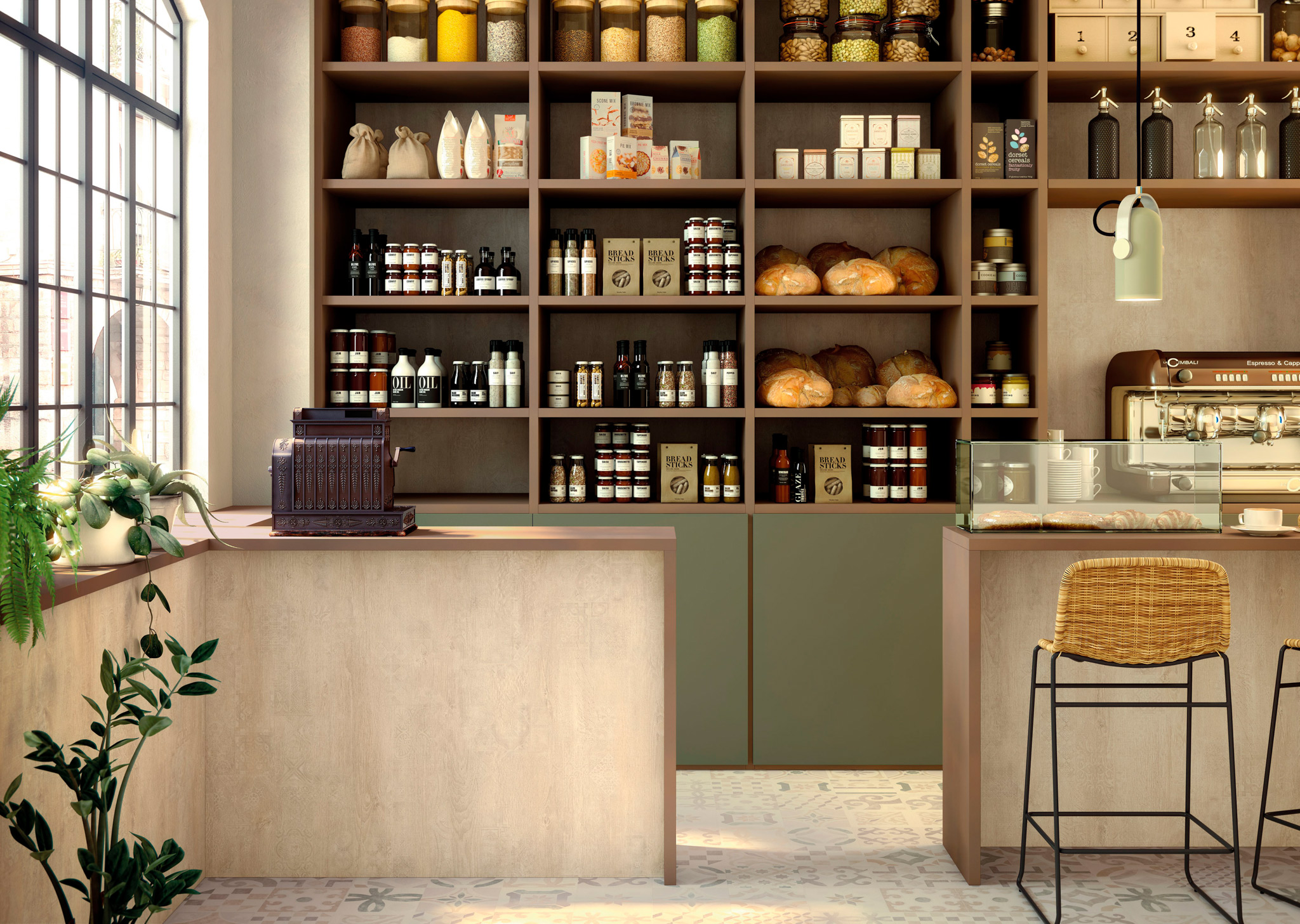
Three textures that make a mark
Although in this post you have a selection of five textures that demonstrate their versatility in any project, we want to offer you three finishes with which you’ll achieve the three main characteristics we highlight in this report: metals, stones, and craftsmanship.
Metallic finishes
The rough aspects and hyper-textures of casting processes are suitable for various applications. Industrialized design is becoming a key direction that will last beyond this year and will surely continue into 2025.
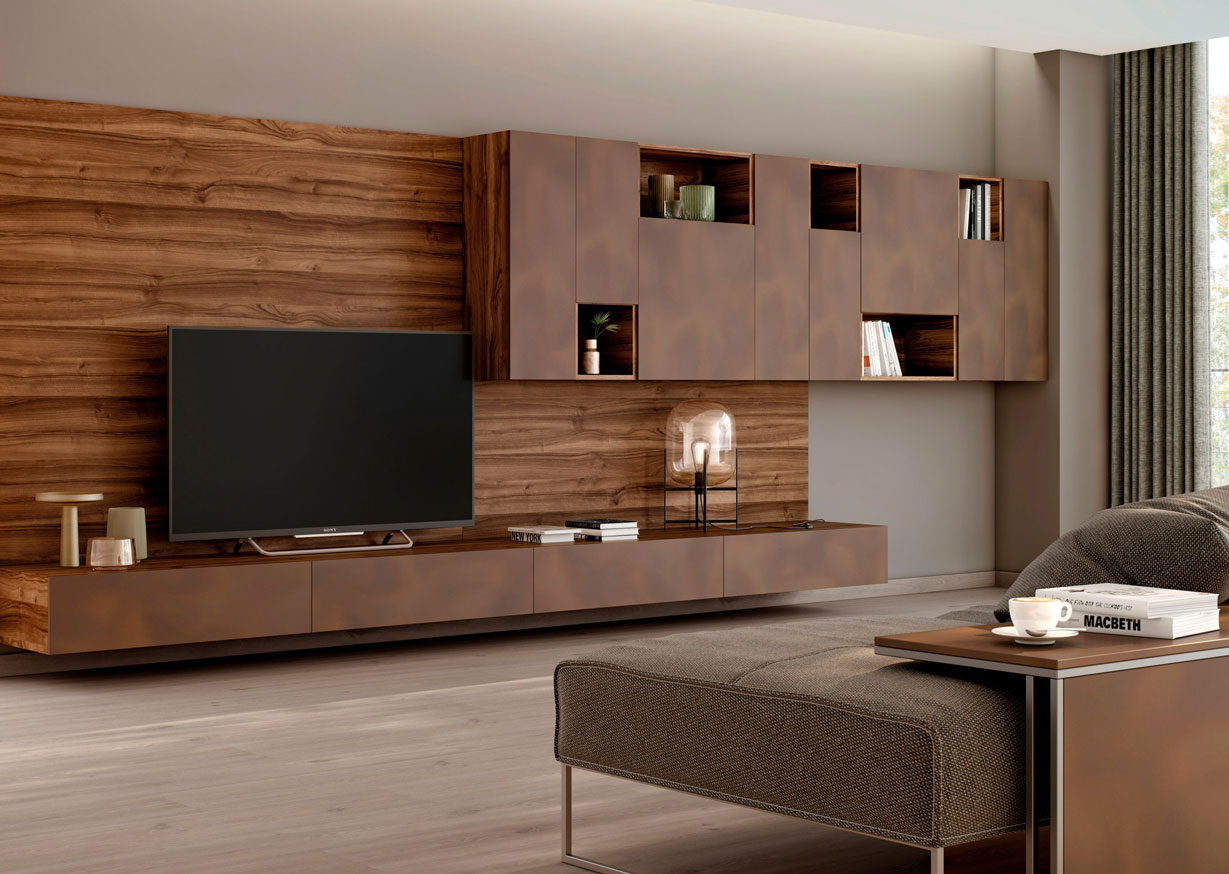
Stony appearance
Stones and micro-stones are exploring previously unknown applications to bring novelty to the perennial narrative they inherently carry.
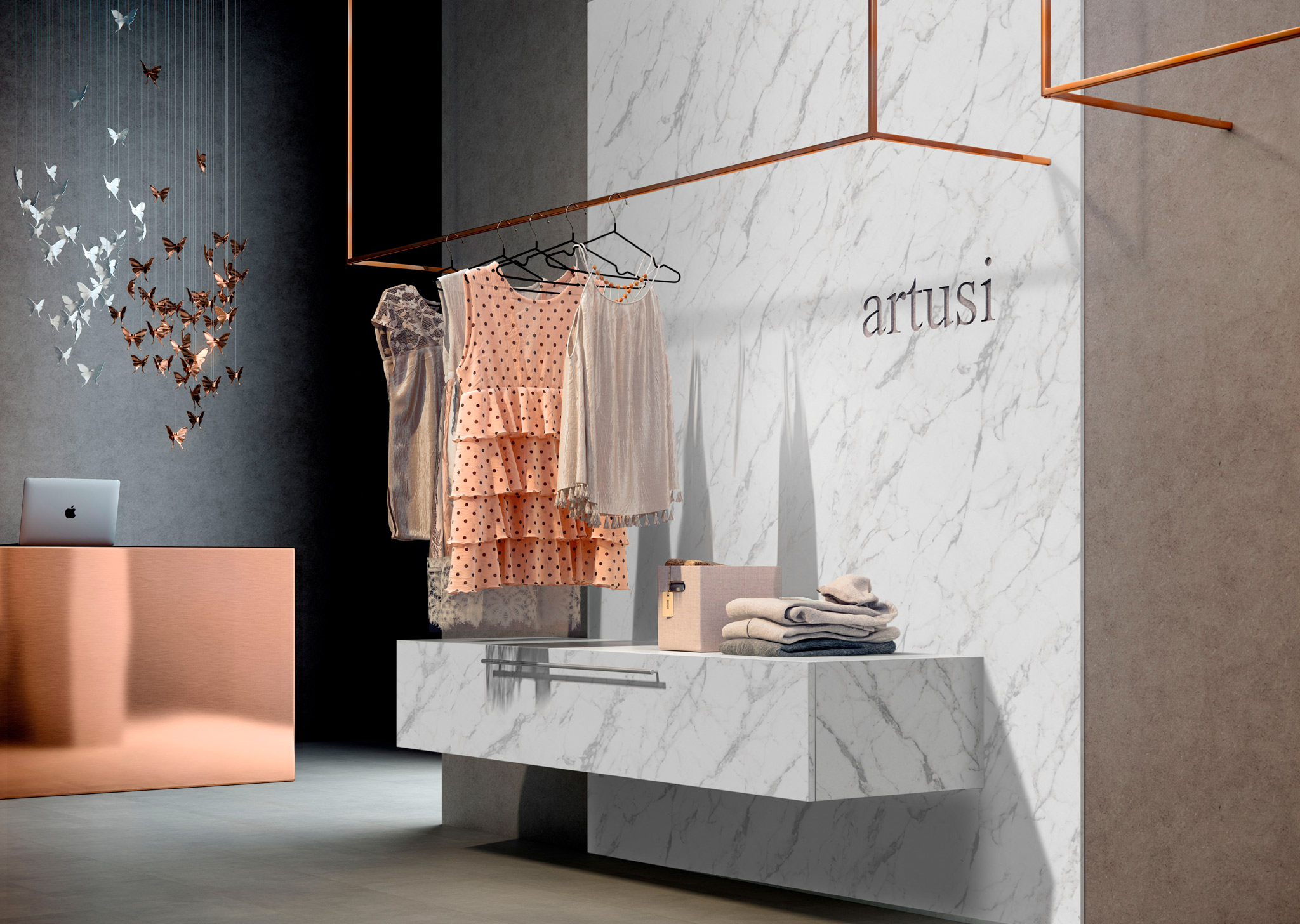
Craftsmanship details
Artisan finishes will continue to be of interest to consumers who seek a story around the material’s origin and the hands that created it, connecting us with the boho aesthetic.
